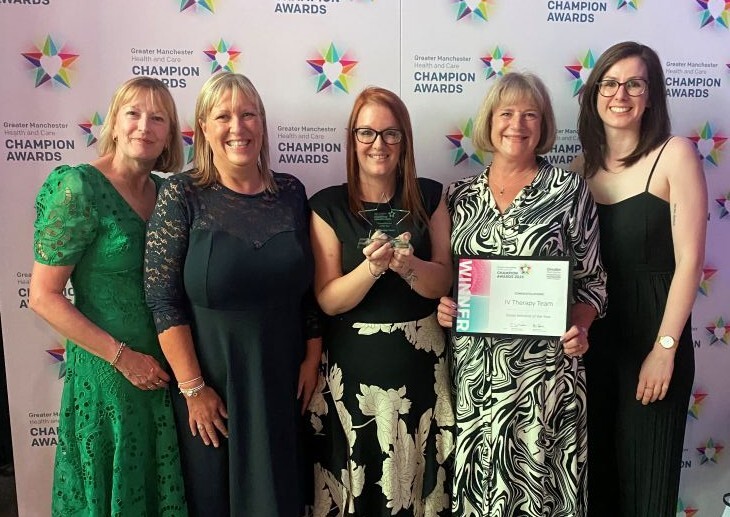Only three ICBs met NHS England’s GP recovery target to expand self-referral pathways by the end of September, Pulse has found.
The target was part of NHS England’s national primary care recovery plan, published in May, which aimed to ‘empower patients’ and free up GP time in order to improve access.
The self-referral requirement covered seven pathways: falls response services, musculoskeletal services, audiology, weight management services, community podiatry, and wheelchair and community equipment services.
But many local commissioners reported issues with meeting the target and some said it would not be possible at all.
NHS England asked ICBs to provide an update on progress against the recovery plan in their October or November public board meetings.
A review of the 36 ICB public board papers for which self-referral data was available has revealed that the vast majority of ICBs failed to meet the end of September target.
Bedfordshire, Luton and Milton Keynes, Mid and South Essex, and South East London ICBs all reported successful completion, having opened up self-referral routes for patients across the seven pathways.
However, six ICBs reported that none of the seven pathways were fully open for self-referrals, while others had only partially met the target, setting themselves new deadlines over the next year.
Black Country ICB said there were ‘significant issues’ with achieving NHS England’s target, while Shropshire, Telford and Wrekin ICB said it had ‘no plans’ to introduce self-referral pathways for three of the services despite being in the national plan.
Greater Manchester ICB, which has not completed full expansion in any of the seven pathways, said: ‘There is a risk that self-referrals could destabilise these services and may mean patients most in need of these services have to wait longer.
‘Self-referrals may not be appropriate for some of the proposed pathways.’
In Bath, North East Somerset, Swindon and Wiltshire ICB area, health leaders said there is ‘significant complexity’ in increasing self-referral routes since there are three different providers for each of the seven pathways.
ICBs where none of the pathways met target
- Black Country
- Devon
- Greater Manchester
- Shropshire, Telford and Wrekin
- Somerset
- Surrey Heartlands
Last month, NHS England reported ‘good progress’ but did not clarify how many ICBs had successfully achieved the target.
An NHS spokesperson said: ‘Over 600 NHS services are now offering self-referral routes and the health service is on track to achieve a 50% increase in self-referrals by March 2024.’
NHSE’s 2023/24 planning guidance, which first set out the target for ICBs, said expanding self-referrals ‘empowers patients to take control of their healthcare, streamlines access to services and reduces unnecessary burden on GP appointments’.
The chair of Leicester, Leicestershire and Rutland (LLR) LMC, Dr Grant Ingrams, told Pulse that self-referral pathways are ‘really helpful to have’ because GPs and receptionists can ‘divert’ patients towards them.
Although dealing with patient queries for those seven pathways does not currently make up a ‘large percentage’ of GP work, Dr Ingrams said expanding self-referral would ‘chip away at the edge’.
LLR ICB did not report completion of NHS England’s target – in the public board report, health leaders said self-referral was partially available for some pathways but that more work was required and a ‘local decision’ would be made.
Dr Ingrams said he was ‘not surprised’ ICBs have struggled to meet NHS England’s target, and emphasised that there ‘won’t be a GP recovery until [NHS England] invest in it’.
He added: ‘The ICBs have been given a huge task to do and they’ve also not been given any resource. So, like the rest of the NHS, I’m not surprised when ICBs struggle to meet these.
‘ICBs at the moment are being told they’ve got to reduce their numbers of staff, they’re suffering because of a lack of investment in the NHS. These pathways require time and investment to actually set up.’
In November, amid pressures from junior doctor and consultant strikes, NHS England instructed ICBs to prioritise ‘financial balance’, with the GP recovery plan among a host of targets being deprioritised.
A year ago, the Labour Party announced its intention to increase self-referral to secondary care in order to speed up patient access to health services.
Leader Sir Keir Starmer said at the time: ‘Why can’t people with persistent back problems self-refer to physio? Why if you notice bleeding do you have to get a GP appointment, simply to get the tests that you then do yourself at home?’
GPs expressed concern about these proposals, with some saying Sir Keir’s ideas could be ‘downright unsafe’ for patients.
As well as expanding self-referral to community services, the Government has also said there are plans underway for patients to bypass GPs to directly access diagnostic tests for suspected cancer.
This story first appeared on our sister title, Pulse.






